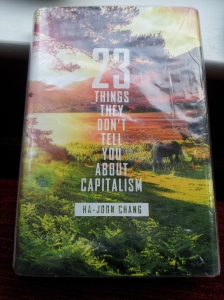Be honest, which household gadget could you live without? Would there be any impact upon your day to day life if you had no laptop? What about your phone or your vacuum cleaner?
When my two friends and I were choosing a flat to live in just after university, having a washing machine wasn’t one of the priorities. ‘The launderette’s just round the corner,’ we reasoned, when weeks later we were hand washing most of our clothes in the bathroom sink. The lady who ran the launderette was rather strict and we were a bit scared of her; she advised us on drying times for different clothing types and that was all a bit much. ‘Hand washing saves money and water, too,’ we admirably reasoned.
Whatever their gadget of choice, I’m fairly sure that most people I know would rather lose quite a few household mod cons than lose their internet connection. To work, communicate, find out information and keep ourselves entertained most of us rely on the internet on a daily basis.
Even the Lords are talking about its importance. A communications committee has raised concerns that the government’s obsession with rolling out speedy broadband overlooks those parts of the country which have little or no coverage at all.
Well, if you ask Ha-Joon Chang, the author of 23 Things They Don’t Tell You About Capitalism, those people in remote parts of Cumbria who each evening struggle to stream yesterday’s episode of Eastenders in a valiant attempt to keep in touch with what’s happening in the outside world don’t have it that bad after all.

I’m reading Chang’s book at the moment and really like the way that he challenges aspects of free-market capitalism which we don’t really question that much. I don’t always agree with him, but it’s refreshing to read a viewpoint which strays from the norm.
One of his chapters is: ‘The washing machine has changed the world more than the internet has’.
He argues, first of all, that the development of internet-based communications hasn’t had as much impact on humankind as the invention of the telegram did. Chang uses the example of sending a 300 word message across the Atlantic. Sending a fax would take 10 seconds and an email two seconds. The invention of the telegraph, on the other hand, reduced the travel time of a message from the steamship’s best attempt, two weeks, to just eight minutes.
More interesting though, and linking to my (brilliant) anecdote about washing machines, is the social change which Chang attributes to the invention of the washing machine.
The time saved thanks to washing machines, according to Chang, has transformed the way that women live by enabling them to enter the labour market (as opposed to washing and ironing clothes by hand and the other lengthy domestic chores due to the lack of electrical appliances). It also meant that those women who were working were increasingly employed in non-domestic roles.
Brilliantly, this: ‘has definitely raised the status of women at home and in society, thus also reducing preference for male children and increasing investment in female education.’
Even better: ‘Even those educated women who choose to stay at home with their children [now] have higher status in the home, as they can make credible threats that they can support themselves should they choose to leave their partners.’
Leaving to one side the, ahem, blissful and limited family unit drawn here, and the fairly patronising overtones about the ‘status’ of women, is Chang making a valid point?
I do like this challenge to the presumed idea that the internet is the greatest progression that society has ever made. But I’m slightly bristling at the argument which places the realm of washing clothes so firmly with women, and that simplifies complex interpersonal processes such as divorce or workplace equality into such a linear process.
On an individual (and possibly selfish) level I’d rather be able to stream a documentary whilst emailing a friend than dry and iron my clothes in super-quick time. But, do we owe more to other technological inventions than we think?
No doubt, inventions such as the washing machine changed the way we all live. But, is there more to come from the telecommunications revolution in the future? And what about the social change which the internet has already brought about?
